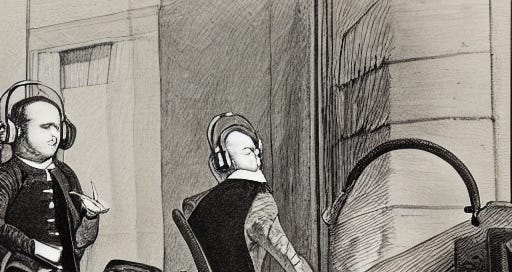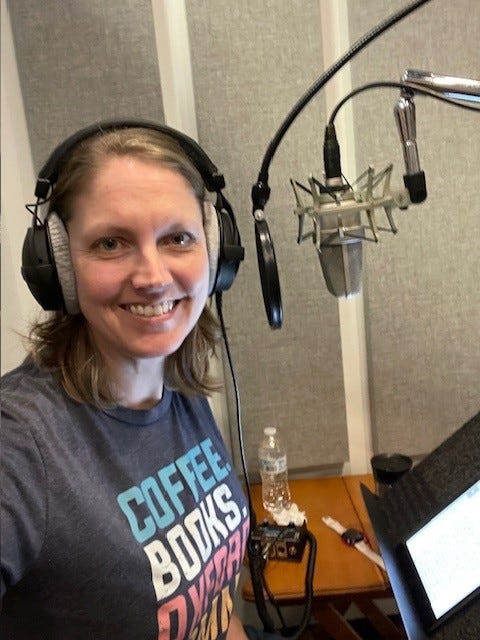I recently (as in yesterday) wrapped up recording the audio version of my forthcoming book, Bridge-Building Apologetics. I drove up to Minneapolis to do it at a studio called Audio Ruckus. I’d interacted with my assigned audio engineer, Jim, several times before I headed up there, and he assured me several times that the process would be laid back and I shouldn’t worry about it.
Of course, I didn’t listen to his advice and worried about it. It turns out he was right, and I ended up somewhat enjoying the process. I learned several things throughout my time in the studio, so I thought I’d give you a behind-the-scenes look at how it all went down.
Reading out loud isn’t the same as writing.
Just because a phrase is beautiful on the page doesn’t mean it will be easy or beautiful to speak. Some of my book’s more “eloquent” sentences were the most difficult to speak out loud. I also learned that parentheticals with extra info are sometimes awkward to include in the recording. For example, let’s say you include a word translated from another language so you have a parenthetical with the language and word it derives from. As you read that out loud, you’ll realize that it just doesn’t flow right, but that’s how you wrote it, so that’s how you have to speak it.
There were a few times when I uttered, “Ugh, why did I write it this way?!” or “Next time I write a book, I’m not doing that.” I’d say lesson learned, but let’s be honest. I’ll still write the way I write, and if I get the chance to write another book and record the audio, I’ll probably say the same thing.
Enunciation can be challenging, especially for the easy words.
Apparently, we all have a word or two we cannot say with ease. Mine are regularly and particularly. They just do not flow off the tongue for me. There are several outtakes that feature me trying to get those two words out clearly.
Speaking of outtakes, there are many.
My outtakes would probably fill a novella, and it’s not just me repeating sentences. I made all sorts of weird noises, like blowing raspberries when words didn’t come out right. I would also frequently get through part of a sentence, say “Nope” and start again. It’s really too bad you don’t get to listen to what’s on the cutting room floor, but I assure you it’s filled with hilarity.
Breathing is important.
Some of my outtakes were due to my running out of breath in the middle of sentences. I realized how important breathing well is when recording an audiobook. Big deep breaths. They not only calm the nerves but also help with the sound and vitality of your voice. I always started each new chapter with a deep cleansing breath, and I took many deep breaths throughout the recording. Oh, and that diaphragm is there for a reason. Use it if you ever record an audiobook. Now I understand what I mean when I tell my daughter to use her diaphragm when she sings. :)
Take care of your voice, and stop if necessary.
Before I took the trip, I bought a travel teapot, throat coat tea and cough drops, lemon juice, and honey. I also avoided dairy products, Coke, and caffeine. I took my humidifier to the hotel, and I tried not to do much talking outside of the recording sessions. That said, I still ran into some trouble on day 2, and we stopped early so I could rest my voice for the rest of the day. Ultimately, my voice held out, and we ended with a product Jim was happy with (I didn’t listen to it). I’m leaving it in his hands now to work his magic.
Overall, this process was such a great learning experience for me. It took less time to record the book than I thought it would (we were originally slated for 24 hours in the studio, but it only took about 14. I’ll go back in a few weeks for touch-ups (that should only take about 2 hours or so), and then, my work in the studio will be done. I’m grateful I got the opportunity to be the voice for my book (I even had to audition to get the gig!). Hopefully, the finished product will be enjoyed by many.





